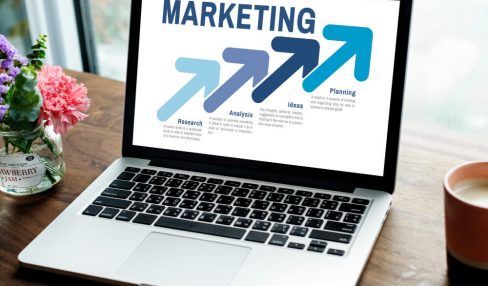Leasing vs. Buying: Which is Better for Your Business Vehicles?
7 Mins Read
Published on: 31 July 2024
Last Updated on: 22 August 2024

Most businesses need logistics. The heavy industries need it more. However, logistics management is only complete with the debate of business vehicle leasing vs buying. There are pros and cons of both processes. Before choosing one, I suggest checking the factors driving buying and leasing, followed by their pros and cons.
You must understand your business’s intrinsic needs and resonate if the same aligns with buying or selling.
Then, you should check your financial status. If that is conducive to buying, then go for it. Otherwise, consider leasing.
Here, we listed the details of both processes. You will also find the most critical factors affecting buying and leasing here.
I also explained how car brokers may help you access the best option for your business.
But let’s understand these differences in the first place.
We can make better decisions once we understand what buying and leasing are.
Hence, it starts the debate between business vehicle leasing and buying.
Leasing vs Buying

Now, we know what these are. Buying is the transfer of ownership rights against compensation. It renders full rights of the business vehicle to the concerned owner. However, the usage eligibility has not been transferred. Instead, the other on-road licenses, liabilities, and leverages are transferred to the current owner.
With leasing, the case is altogether different. Leasing is the long-term occupancy of an asset against a fixed-term exchange. Let’s say you can lease a commercial vehicle for ten years against a certain amount. Here, the concerned new owner gets all rights to operate the asset under his name.
He can make money out of it, too.
Now, some crucial factors impact the outputs from buying and leasing. These factors trigger another debate about business vehicle leasing vs buying.
After analyzing the factors, we can decide which option suits your business.
Car payments
Whether buying or leasing, you will benefit from making a lump sum as a down payment.
In both cases, you may need to pay monthly installments. However, you can downsize the installments if you spend at least 50% of the amount upfront.
Suppose you buy a commercial vehicle against an on-road price of $90000. If you give zero down patent, the monthly installments for 24 months will be $3750 plus taxes and interests on monthly EMIs applicable.
Let’s assume another scenario. You buy the exact vehicle. Buy, you pay $50000 upfront. Now you only have to pay $1666 every month.
You may skim down the installment payment tenure and complete the payment within 12 months.
Indeed, the second scenario is better for any business owner. There are many upfront and contingent expenses in a small business. However, the costs pile up if a recurring fee is added to the list of payables.
I came across an advisory from Centier Bank that says upfront payments are more favorable during leasing.
Many new business owners need clarification about business vehicle leasing vs buying. They should know about the profound benefits of leasing, too.
According to general financing scheme rates, car lease contracts need less upfront payment.
Now, you may have a disposable sum of less than $50000 in the first place. Even then, you may spare as much as possible and reduce your future financial liabilities through leasing.
The other advantage of leasing down payments is that you don’t need to pay regular EMIs every month, too. You may decide on flexible payment terms with the leasing agent.
Vehicle mileage
The choice of business vehicle leasing vs buying rests mainly on the concerned vehicle’s mileage. In the first place, leased cars have mileage limits. However, purchasing cars does not have such restrictions. So you can use the company vehicles flexibly.
Tax liabilities
You may enjoy tax rebates in the form of annual vehicle expenses. The standard rate deduction policy supports that. You may also file a rebate amount during tax calculation in the form of an actual expense deduction requisition. When you buy a car, you may switch between the two schemes, depending on which is more favorable. However, the same benefits are not available with leasing.
You have to stick to the option selected by the buyer of the leased vehicle in the first place.
If your logistics needs increase, your vehicle cost will grow, too. This fixed tax deduction policy will be problematic.
Understanding the pros and cons of Leasing
Leasing is similar to renting. However, the tenure of leasing is much more than renting. An average vehicle lease tenure is between 2 to 4 years. It may be higher, as well. Leasing a vehicle means renting it for a specific period, usually 2-4 years.
When the lease term ends, you can customarily return the vehicle. You may lease another car again. Moreover, you can purchase and accommodate the leased vehicle in your residual logistics arsenal.
Pros of Leasing:
- Lower Initial Costs: The down payment for leasing is much lower. In comparison, buying needs much higher upfront fees.
- Access to New Vehicles: A newly leased vehicle will keep your logistics force charged. You may rent a new car every few years. Hence, you can enjoy the latest technology in commercial vehicles.
- Maintenance and Warranty: Many leasing packages have low maintenance costs. Primarily, the manufacturer’s warranty covers it. Especially if it is a new vehicle. As a result, the separate pocket pinch for repairs in the first 1 or 2 years is almost zero.
- Tax Benefits: You may cite lease payments as business expenses, too. Hence, you will get a tax rebate. However, the same does not apply to purchased vehicles.
Cons of Leasing:
- Mileage Limits: Leases usually impose mileage restrictions. You cannot go beyond the set limits as it can result in significant additional fees.
- No Ownership: After the lease tenure, you do not own the vehicle anymore. This means you won’t have an asset to sell or trade in.
- Long-Term Costs: Over the long term, leasing can be more expensive than buying if you continuously lease new vehicles.
- Restrictions on Modifications: Leased vehicles must be returned in good condition with no significant modifications, which might limit customization for business needs.
Understanding the pros and cons of Buying
Buying a vehicle means you have full ownership over it, after the loan is paid off. This option can be more straightforward, with the car becoming a long-term asset for your business.
Pros of Buying:
- Ownership: You own the vehicle and can keep it as long as you want. This can be a significant advantage if you plan to use it for many years.
- No Mileage Restrictions: Buying does not come with any mileage restrictions. This may be beneficial if your business requires extensive travel.
- Customization: Owning the vehicle allows you to modify it to suit your business needs without any restrictions.
- Long-Term Savings: Buying can be cheaper than leasing, especially when you retain the vehicle for many years after the loan is paid off.
Cons of Buying:
- Higher Initial Costs: Buying a vehicle typically requires a larger down payment and higher monthly payments.
- Depreciation: Vehicles depreciate over time, and the resale value can be significantly lower than the purchase price.
- Maintenance Costs: Maintenance and repair costs are your responsibility after the warranty expires.
- Capital Tied Up: Buying ties up more capital, which could be used for other business investments.
Talking with a Business Car Loan Broker
Consulting with a business car loan broker can be incredibly beneficial whether you decide to lease or buy. A broker can provide expert advice, help you understand your options, and secure the best financing deals tailored to your business needs.
Advantages of Using a Business Car Loan Broker:
- Expert Advice: Brokers have abundant knowledge of the car leasing and buying markets in any commercial domain. They may offer the best advice, whether it is leasing or buying. But you must convey your criteria and limitations to them.
- Access to Multiple Lenders: Brokers know multiple lenders in the sales market. Hence, they can accurately compare the financing options that suit your business needs.
- Time-Saving: Both leasing and buying involve loads of commercial paperwork. However, you may save yourself from the hassle. For that, you need the car broker’s help. Let them do the deal. In the meantime, you may focus on the more critical business needs.
- Negotiation Power: Brokers can often secure better deals than they might be able to on their own, thanks to their industry connections and experience.
- Comprehensive Support: From the initial consultation to finalizing the deal, a broker provides ongoing support to ensure the financing process is smooth and stress-free.
Conclusion
I resolved the debate of business vehicle leasing vs buying. There are various factors in deciding which is better: leasing or buying. These factors include your intrinsic business needs, long-term business goals, and other scales.
The upfront cost associated with leasing is lower. At the same time, leasing enables you to drive the latest commercial vehicles every few years.
However, buying only offers long-term ownership of the exact vehicle.
Yet buying has its benefits. Firstly, it provides full ownership to the concerned buyer. Secondly, it offers long-term savings. The recurrent leasing costs in a business are higher than the one-time buying costs.
You may approach a car broker to help you with the nitty-gritty of business vehicle leasing vs buying. So I recommend taking their expert advice before deciding. They can provide the best options matching your business needs and liabilities.
Read More…



















Comments Are Closed For This Article